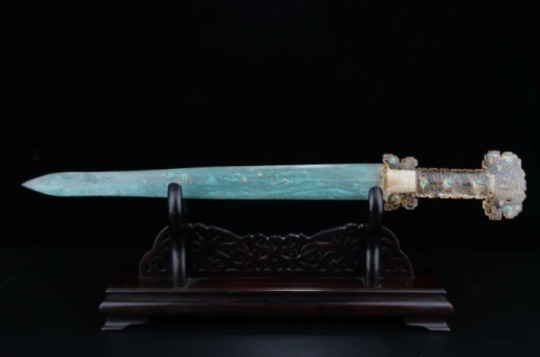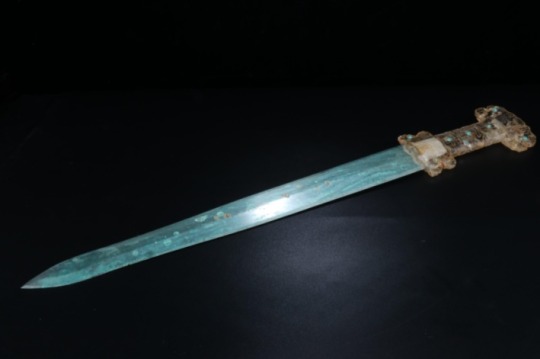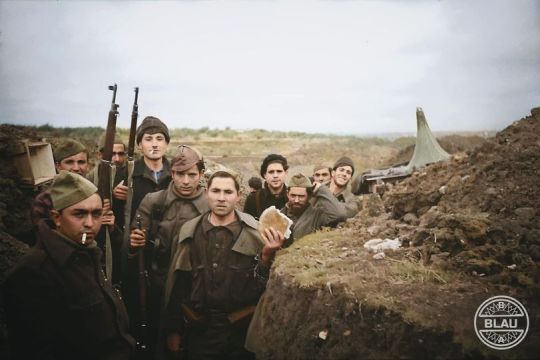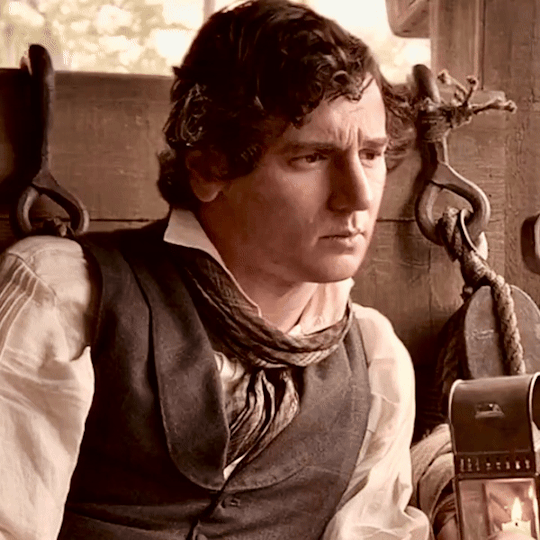#civil war period
Text

Little Women (2019) Director: Greta Gerwig
“Women, they have minds, and they have souls, as well as just hearts. And they've got ambition, and they've got talent, as well as just beauty. I'm so sick of people saying that love is just all a woman is fit for. I'm so sick of it… But I’m so lonely.”
#film#film edit#period drama#period film#historical film#american civil war#civil war period#civil war era#mid-victorian era#grand era#louisa may alcott#little women#little women 2019#greta gerwig#jo march#saoirse ronan#color#color palette#half agony half queue
16 notes
·
View notes
Text



Chinese Bronze Sword With An Inlaid Rock Crystal, Turquoise and Gold Hilt
Warring States Period, Circa 4th - 2nd Century B.C.
#Chinese Bronze Sword With An Inlaid Rock Crystal Turquoise and Gold Hilt#Warring States Period#Circa 4th - 2nd Century B.C.#bronze#bronze sword#ancient artifacts#archeology#archeolgst#history#history news#ancient history#ancient culture#ancient civilizations#ancient china#chinese history#chinese art#art
3K notes
·
View notes
Text

A group of Republican militiamen posing in a trench somewhere on the Madrid front. Possibly taken in late 1936 or early 1937.
172 notes
·
View notes
Text





Some dreamy scenes from The Beguiled (2017), dir Sofia Coppola
#i liked it#and i liked the ending#Sofia Coppola#the beguiled#kirsten dunst#elle fanning#period drama#women#cottagecore#light academia#1800s#civil war#female academia#nature#golden hour#mine#film#movie#coquette#coquette aesthetic
203 notes
·
View notes
Note
AU ask: the Rogue One crew in a doomed (or not) nineteenth-century Arctic exploration story...
oh my god???? YOUR MIND! no joke, can someone write this, please?
Bodhi as the scientist kicking the whole thing off (Bodhi must always be The Catalyst this is a rule)
Jyn as a geologist - her parents set heaven and hell in motion to send her to university. Geology was her mother's special interest, too, and they used to spend a lot of time together with Jyn's books.
Also, her father was a scientist and the one to originally plan this mission. He went to Lord Krennic (House of Lords) for government funding, the mission got infinitely more dangerous because they added some kind of land claim for the Crown to it.
Bodhi fell ill at the last moment - he was Galen's best student and supposed to go on the expedition - and Galen's crew disappeared into the Arctic, never to be seen again.
Bodhi and Jyn are half wanting to complete his work, half trying to find out what happened to him
Cassian as the captain, obviously. He resents this whole idea from the get-go, but he needs the money and he secretly thinks these green idiots need all the help they can get. Also, this could prove that Lord Krennic and Lord Tarkin are corrupt and sent Galen Erso to his death to further their own means, and Cpt. Andor may or may not be part of a group who has been trying to prove this and other machinations like it for probably a decade...
Melshi as first mate, Chirrut as one of the sailors (I feel strongly about this), Baze as the ship's cook, Kay as the ship physician (we're going a little Master and Commander on this now)
Cassian and Co. are initially very apprehensive about Jyn and Bodhi - a bourgeoise young lady and a university student who never goes outside, they won't last the week! - but it turns out that
- Jyn spent a lot of time after her father's disappearance with "uncle" Saw, a US Navy captain always sailing *dangerously* close to, uh, piracy
- Bodhi is trying his best and his best is actually very helpful
- he also turns out to be a very talented navigator in his own right
things get *grim*. I could never do this fic justice because I know nothing about ships, geography, the navy, or the Arctic, but there must be storms on the high seas, the ship getting stuck in the ice, some undercurrent of political intrigue (please note here that I have no idea when to set this and therefore can't give examples. Maybe mid- to late 1800s. I feel strongly about it NOT being the 1830s simply because that fashion is Not It for this scenario)
several crew members have to die tbh, maybe main crew members
at least one of the extended crew was paid off by Krennic, actively trying to sabotage the mission (so they don't find out what happened to Galen)
at some point, I want them to be Doomed and all the long-time sailors completely giving in to their fate, only to have Science and Modern Thinking by Jyn and Bodhi save the day (it's a very old trope but it's period-appropriate!)
#god this is why i love this ask meme so much this is such a cool concept!!#I'm genuinely sad this isn't a fic now#thank you dear!#notaspleasure#ask meme responses#period au#rogue one#yes galen is apparently the franklin expedition in this#do i know what type of scientist you are when you go to the arctic?? obviously not#also nobody ask me how there is a black navy captain in probably the us civil war i don't know he just is
40 notes
·
View notes
Text

📖"Runnin' Roughshod"
Pairing: Bucky x black female Reader
Rated: Explicit
Tags: civil war, westward expansion, homesteader Bucky, Black!Fem!Reader, slavery, historic AU, forbidden romance, interracial relationship, racism, period typical attitudes, brothel, prostitution
A Bucky x Black!fem!Reader historical AU fic that I decided to bullet point for funsies, and then wound up writing half of the damn thing that way 🙄
You're a slave living in 1860 Missouri, just outside of St. Louis.
You're the property of (and half-sister to) Master Lewis. Lucky for you, Master Lewis Senior is dead, and Lewis Jr.'s young bride Darcilla is kind and agreeable, with progressive notions that she brought along with her trousseau when she came from Maryland to wed Master Lewis.
Life is very good for you, compared to some others. You work in the house, as lady's maid to the new Mrs. Lewis (who insists you call her Ms. Darcy), and sometimes help in the shop in town.
The Lewis's own a handful of other slaves who help run their household and dressmaker's shop, but since the death of your mother you've had no family (well, except for Master Lewis, though nobody counts that). You do your work and keep to yourself. Sometimes you make a little money at the dress shop, which Mistress Darcy lets you keep behind her husband's back.
You save up every penny, but buying your own freedom is a far off dream. Your whole life, you've never seriously contemplated running away. It isn't worth the risk.
But when tensions in the county begin to rise and you hear rumors of secession, you grow worried. You begin to squirrel away what valuables you can, gain the trust of your mistress, and bide your time.
With the uncertainty of war brewing, Master Lewis announces his plans to move the family deeper south. You can no longer afford to wait. You have to get out now, before your one and only chance is lost forever.
Your money gets you as far as Topeka, where you're forced to stop until you can earn enough to join a wagon train out West. You find work at a saloon, serving drinks and making flirty conversation with the men who come in for a good time.
In the mornings, you begin to learn the piano from "Old Freddie," and during the occasional slow afternoon, Madame Lapierre, the French woman who governs the "upstairs" girls, will play a game of chess with you whilst she tries to make headway in convincing you to "expand your employment opportunities."
Topeka is Free-Soiler territory, but there's always the fear that Master Lewis might find you. And, on the verge of statehood, the Kansas territory has tipped into increasingly violent conflict between anti- and pro-slavery settlers. With conditions worsening and all out war looming on the horizon, you have no guarantee of safety there anymore.
Desperate to raise the funds to go West more quickly, you tell Madame that you're ready to start selling more than drinks and conversation. You become her newest "poppet" prepared to do whatever it takes to get out of town before your luck - and your freedom - run out.
You've never been with a man, but you know the rudimentary facts of life, and with a little help from the other girls and Madame, you prepare to become just another "sporting girl."
Your first afternoon on the job, a roughshod rider comes into town, seeking lodging, drink, and the sort of "company" that you're there to provide.
The white girls get first dibs on clients, but the roughshod asks for you to be sent up to his room. You wish he wouldn't have. Not because you want to put off the inevitable, but because now the other girls will be nasty to you. The man is handsome, and the girls were all eager to get their hands in his pockets.
You're shaking in your boots, but Madame gives you a shot of whiskey, a spritz of her genuine French perfume, and a tiny pewter snuff case for "wetting the way," (whatever that means). She tells you to put it in your bosom and use it "when the time is right."
Terrified but determined to see it through, you head upstairs to the roughshod's room.
It does not go as you expect. First, he demands to know if you're working there of your own free will. You admit that he is your very first client - which you regret doing, because his face goes even stonier when you do. He barks out orders at you, insisting that you leave the room at once and fetch him the house's tub.
He wants a bath - a hot one! - and with soap, and a towel!! You're very happy about that, because it costs a whole sixty-five cents more, and it will also mean extra time spent with you, which leaves you with even more money in your pocket at the end of the day. You're still nervous, but elated at the luck you're having on your very first client!
The other girls are stewing in the hall with jealously and make snide comments about your race and the man's preference for you. They refuse to help you prepare the bath, but you don't care one lick. That's just more time the roughshod will be paying to spend with you, while you haul bucket after bucket of boiled water up the stairs.
Madame catches you in the hallway and tells you not to mind the other girls. She's a bit drunk on sherry, and she jokes that at this rate, you'll probably only have to spread your legs for two or three minutes! (God, you hope so).
The man is filthy, and he's hurt - as though he's been in a fight or fallen from his horse. He asks you to help bathe him, and you get started with your heart in your throat. His manners are as rough as he is, but he isn't mean to you, and he doesn't try to grab you, which is a relief. With shaking hands, you proceed to wash him.
This is your first time touching a naked man's body, and you try not to look down into the bathwater as you wash him. You're embarrassed, but it's not just nerves; seeing and touching such a handsome man has you warming as though you've downed another three shots of whiskey.
You squirm and fight not to let the roughshod see your flusterment, as your belly tightens with the familiar, but never indulged, feelings of lust.
The roughshod stays in the bath until the water's gone gray and cold. You kneel beside the tub and wring out the cloth, but squeak when, all at once, the man heaves himself up to standing, the water streaming down his body and his ... his Johnson right at the level of your face!
He grunts and swings his leg out of the tub - exposing all of his manhood jostling around not even two feet from your face as he does so! You blush and look away, but you can feel him staring at you as he grabs up the towel and dries himself off.
Surely, you think, now he will ask you to take off your clothes and join him on the bed. You know only the basics of what goes where for the act, having witnessed clandestine coitus a time or two in your life. You wait, unable to look up at him, as you expect to hear his gruff voice order you about. And it does.
"Get up."
You stand, trembling. But what he says next isn't what you're expecting: "You know how to rub a man's muscles?"
You look up at him. He's got the towel in hand, making no effort to use it to cover himself. Then again, you think, why should he? You're just another painted poppet (or, soon to be). "R-rub what?" you stammer - quite idiotically. Of course, you know what muscles are. ... You're just not sure if he's using the word as a ... a euphemism.
He rolls his eyes and brings the towel up to dry his hair. "Knew I should'a asked for the China girl," he mutters.
You clear your throat and look steadfastly at his face. "You're hurt," you say, because you've seen every part of his body now, despite your efforts to keep your eyes trained North. And you know he's got bruises all on his legs and back and sides.
The roughshod nods and abandons the towel to the floor. "Yeah." He's not a talker, but you get the impression he's waiting to hear something from you.
You struggle to think of what that might be. "I ... have ... rubbed my mother's shoulders, when they hurt her. Um. And her feet?"
If you're not mistaken, the man's mouth twitches up the barest bit, beneath his beard. "Eh," he says, then turns around, presenting you with his - very manly - ass. "How bad can ya be?" He walks towards the bed, waving you along without looking back. "Well c'mere then."
He climbs up onto the room's bed and lies down, face in his arms. "What're you doing?" he grumps. "I said get over here."
Swallowing thickly, you hurry across the room. With his back turned, you have less trouble letting your eyes rove over his naked body. His back is broad and muscled, going from impossibly wide and tanned shoulders, tapering all the way down to his slim hips and his pale ass. His thighs are hairy and---no. You force your eyes true north again, looking at the bruises that you're increasingly starting to suspect came from a beating. "What happened to you?" you ask.
His head stays pillowed in the crooks of his arms. "Get up on the bed," he grunts. "Sit on my ass and I'll tell 'ya what to do."
Your eyes all but bug out of your head, when he tells you to straddle him. You do, your skirt rustling as you move and get up on him. You're hesitant to put your weight down, but he huffs and tells you to sit.
"Speck like you ain't gonna feel any more'n a feather. Sit."
He talks you through giving him - what he deems a "goddamn lousy" - massage. He grunts whenever you press on his bruises, pained, but once you get the hang of it, he at least goes quiet and doesn't complain anymore, so maybe you're not so horrible at it after all.
You rub his shoulders, his neck and back; your belly coiling tight once again, filling with a swooping feeling at having his warm skin and hard muscles underhand, at the feeling of his body held between your legs. You worry that he somehow knows how you're reacting, but you don't speak and neither does he.
When he eventually groans from pained-pleasure rather than pain, you can't help but smirk triumphantly. You keep expecting him to roll over and declare the massage over and demand for you to touch his Johnson, but that keeps not happening (though he does groan a little more).
You check the clock and see that it's now early evening. The light outside is almost gone. You worry that he's lost track of time and might refuse to pay for the hours he's spent with you, which will get your wages garnished.
So, tentatively, you slide your hands down to his thick waist, the swooping feeling intensifying at watching all the muscles in his back tense and shift underneath the skin.
"Why'd you stop?" he grunts.
"Are ... are you sure ..." You hesitate, not knowing how to seduce a man.
"Spit it out," he says, annoyed.
You lick your lips. "Well I just ... it's been awhile now and ... Are you sure this is all you want?"
"It feels good," he snaps, voice muffled in his arms. "That's what I'm payin' you for, ain't it?"
His uncharitable response should make you relieved, but instead it just leaves you worried and confused. Are you not seductive enough? Is he going to complain to Madame once he leaves here?
You need to speak up, take action, or else you may be in trouble. "Mister," you say, "I--"
"James," he grunts. "S'my name."
You pause, surprised that he wants you to use it, since he doesn't seem to like you very much. "James," you try again. "I want to make sure you're ... um ... getting your money's worth?"
He's silent and still, then drawls, "You don't sound too sure about that."
FOLKS THIS HAS BEEN OUT OF HAND FOR AWHILE NOW. LETS GO BACK TO AN ACTUAL FUCKING OUTLINE:
He has you lie down on the bed, and he regards you tenderly and seems like he's going to finally do it, but his face goes sour when you nervously reach your hand for his Johnson, and he tells you he doesn't need anything else.
"That's enough." He rolls away, comes back with a dollar bill, hands it over and gruffly tells you to go over to the mercantile and buy him a fresh shirt.
Relieved and yet somehow also terribly disappointed, you do so. When you return, his hair is tied back and he's got his pants on again.
You expect him to dismiss you, but he tells you he wants your company in the downstairs, too. He takes you down and the two of you eat and drink together at his behest. As it's now evening, the other poppets work on men nearby, shooting you jealous looks every so often.
James slowly opens up to you, engaging you in conversation over his dinner. You can't help but talk back, the conversation coming naturally and your shoulders relaxing. James is much more likeable after a whiskey or two, and the two of you even laugh and joke together. He decides to teach you a dice game, and the two of you have fun well into the evening, until he goes back up to bed -- alone.
Madame is drunk and very proud--because the roughshod actually pays for the entire time! In one fell swoop, you've made a handsome sum! You begin to hope that soon you'll be able to buy your way onto a wagon train and go West!
But the next day, your fortunes change.
A lawman shows up with none other than Mr. Brooks--Master Lewis' most trusted slave. Brooks tells the lawman that you are the one he's looking for. He has your papers to prove Mr. Lewis' ownership!
Being only tenuously free territory, the lawman has the say so on what happens to you. Just when it looks like he's going to hand you over to Brooks, the roughshod comes downstairs. He claims you're his property and that your name is Pearl. He has no proof, but says that's because he bought you from a 'chief down in Indian country' (the Oklahoma territory).
One of the white girls calls out that that's not true: you work there.
It seems that the lie won't work, but when the lawman asks Madame if that's true, Madame says your name is Pearl and you showed up with the roughshod the other day.
The marshal decides to trust the word of a white man over Mr. Brooks (who looks very angry indeed). He brandishes the papers and promises to come back with Master Lewis.
With no time to spare, you make haste. You have to leave town now, no matter the fact that you don't have the money to make it out West. You stuff your things in your bag and leave with the wages you've earned.
Outside, the roughshod grabs your arm and pulls you in. He demands you tell him the truth, since he stuck his neck out for you.
You confess everything--running away, your plan to set out West for San Francisco. You fear that he's had a change of heart and will take you to the lawman, but he gets stern-faced again and gruffly tells you to come with him back to his home with him.
You're confused, but he is bossy and all but forces you back to his homestead with him. There, he informs you that, after getting into a "scrape" with some locals himself, he has to leave. He offers to take you out West with him, and part ways in California.
You agree.
Sometime, months later, in California:
The country is at war, but it feels far away from where you are now, as do Master Lewis' chances of ever finding you again. James has hope that the North will win and slavery will be done away with, when the two of you arrive in San Francisco. You make him breakfast, and ask: "What now?"
He gets quiet for awhile. "Woman like you?" He says, chewing the last bite of a biscuit. "Sews, can play chess, hard worker, beautiful, and you cook like this?" He sticks his tongue in his cheek and looks away for a moment. When he looks back, there's false cheer in his eyes. "You're gonna make some man a fine wife someday."
You inhale deeply, fighting to keep the sting of that comment from getting to your eyes. "But not you?" you finally say, once you've gathered the breath - and the courage - to do so.
The false cheer bleeds to sadness, fond and regretful, and he shakes his head softly. "No Darlin'. Not me."
(spoiler alert: you wind up together with a happy ending anyway)
IM SORRY IT'S TWO AM WHY DID I DO THIS I NEED TO SLEEEEP 😩
(Will def be writing (more of) this fic in the future though!)

#historical au#marvel#mcu#bucky barnes#fanfiction#fanfic#sebastian stan#historical fiction#historical romance#forbidden love#forbidden romance#civil war#bucky barnes x reader#bucky barnes x you#black reader#bucky barnes x black!reader#black fem reader#slavery tw#slavery in america#brothel au#outlaw bucky barnes#wild west#fic imagine#fic writing#fic idea#plot bunny#period typical racism#interracial couple
20 notes
·
View notes
Text
Films good movies good banshees of inisherin was good
#mfw a movie has irish slang in it and i am familiar with it instead of usamerican stuff#i have Some Thoughts on the setting of inisherin + the time period given the givens abt the aran islands#but nothing concrete. might meditate on it#like ok im no scholar on the aran islands ive been there a couple times ive read a couple articles thats it#but like. the tourism leaning into their image of Old Irish Villagín With Sheeps And Stone Walls basically overruns its reputation#and the islands have leaned hard into the tourism and portraying themselves as True Irish Old Villages or whatever#and thus settles the situation where like. everything about the islands pander to the tourists#the islands themselves are not doing well as places to live iirc#aging population people moving away lack of amenities and funding and resources that arent Tourism#its a gaeltacht but the tourism business mandates knowing english etc etc etc lotsa shit#like i had a school friend from an island and she was always unreachable on breaks bcos the island didnt have wifi#SO! the islands around ireland suffer from lack of facilities while bending to tourism bcos they gotta#BACK 2 BANSHEES to be clear inisherin isnt an actual island but it was filmed on inish mór and very clearly based on the arans#i like the island setting bcos of the sense of isolation it gives i think it was a good choice for the movie#HOWEVER its like. you know the thing where all irish media needs to be set in the old times#when we were all wearing aran wool jumpers and playing our little instruments and being cute historical dotes#yeah. that. compounded with the aran islands wicked having to play into that in the present day#like banshees itself isnt that bad an offender. the island setting just makes it more obvious and you could tick lines off on a bingo sheet#(shoutout to the obligatory civil war reference)#where was i going with this. im tired of weird 'back when ireland was ireland' shit being Thee thing to make art abt#this is why young offenders is the best piece of irish cinema this decade. i need to rewatch the young offenders
8 notes
·
View notes
Text
Once invited, your guest of choice will come over and stay until the party is over (Let’s say it starts sometime around 6pm and ends between 1-5AM, depending on how committed you are as a host). You cannot cancel the party or end it early. You cannot make your guest leave early either.
Choose wisely…
#poll#new years#new years eve#ancient mesopotamia#ea nasir#ancient rome#dark souls#elden ring#norse mythology#shakespeare#english civil war#regency period#wallachia#watership down#monty python
17 notes
·
View notes
Text
Queen Margaret (of Anjou) had written to the Common Council in November when the news of the Duke of York's coup was proclaimed. The letter from the queen was published in modernised English by M.A.E. Wood in 1846, and she dated it to February 1461 because of its opening sentence: ‘And whereas the late Duke of N [York]...." However the rest of the letter, and that of the prince, is in the present tense and clearly indicates that the Duke of York is still alive. The reference to the ‘late duke’ is not to his demise but to the attainder of 1459 when he was stripped of his titles as well as of his lands. If the queen’s letter dates to November 1460, and not February 1461, it make perfect sense. Margaret declared the Duke of York had ‘upon an untrue pretense, feigned a title to my lord’s crown’ and in so doing had broken his oath of fealty. She thanked the Londoners for their loyalty in rejecting his claim. She knew of the rumours,
that we and my lords sayd sone and owrs shuld newly drawe toward yow with an vnsome [uncounted] powere of strangars, disposed to robbe and to dispoyle yow of yowr goods and havours, we will that ye knowe for certeyne that . . . . [y]e, nor none of yow, shalbe robbed, dispoyled nor wronged by any parson that at that tyme we or owr sayd sone shalbe accompanied with
She entrusted the king's person to the care of the citizens ‘so that thrwghe malice of his sayde enemye he be no more trowbled vexed ne jeoparded.’ In other words the queen was well informed in November 1460 of the propaganda in London concerning the threat posed by a Lancastrian military challenge to the illegal Yorkist proceedings. Margaret assured the Common Council that no harm would come to the citizenry or to their property. Because the letter was initially misdated, it has been assumed that the queen wrote it after she realised the harm her marauding troops were doing to her cause, and to lull London into a false sense of security. This is not the case, and it is a typical example of historians accepting without question Margaret’s character as depicted in Yorkist propaganda. Margaret’s letter was a true statement of her intentions but it made no impact at the time and has made none since. How many people heard of it? The Yorkist council under the Earl of Warwick, in collusion with the Common Council of the city, was in an ideal position to suppress any wide dissemination of the letter, or of its content.
... When Margaret joined the Lancastrian lords it is unlikely that she had Scottish troops with her. It is possible that Jasper Tudor, Earl of Pembroke, sent men from Wales but there was no compelling reason why he should, he needed all the forces at his disposal to face Edward Earl of March, now Duke of York following his father’s death at Wakefield, who, in fact, defeated Pembroke at Mortimer’s Cross on 2 February just as the Lancastrian army was marching south. The oft repeated statement that the Lancastrian army was composed of a motley array of Scots, Welsh, other foreigners (French by implication, for it had not been forgotten that René of Anjou, Queen Margaret’s father, had served with the French forces in Nomandy when the English were expelled from the duchy, nor that King Charles VII was her uncle) as well as northern men is based on a single chronicle, the Brief Notes written mainly in Latin in the monastery of Ely, and ending in 1470. It is a compilation of gossip and rumour, some of it wildly inaccurate, but including information not found in any other contemporary source, which accounts for the credence accorded to it. The Dukes of Somerset and Exeter and the Earl of Devon brought men from the south and west. The Earl of Northumberland was not solely reliant on his northern estates; as Lord Poynings he had extensive holdings in the south. The northerners were tenants and retainers of Northumberland, Clifford, Dacre, the Westmorland Nevilles, and Fitzhugh, and accustomed to the discipline of border defence. The continuator of Gregory’s Chronicle, probably our best witness, is emphatic that the second battle of St Albans was won by the ‘howseholde men and feyd men.” Camp followers and auxiliaries of undesirables there undoubtedly were, as there are on the fringes of any army, but the motley rabble the queen is supposed to have loosed on peaceful England owes more to the imagination of Yorkist propagandists than to the actual composition of the Lancastrian army.
... Two differing accounts of the Lancastrian march on London are generally accepted. One is that a large army, moving down the Great North Road, was made up of such disparate and unruly elements that the queen and her commanders were powerless to control it.” Alternatively, Queen Margaret did not wish to curb her army, but encouraged it to ravage all lands south of the Trent, either from sheet spite or because it was the only way she could pay her troops.” Many epithets have been applied to the queen, few of them complimentary, but no one has as yet called her stupid. It would have been an act of crass stupidity wilfully to encourage her forces to loot the very land she was trying to restore to an acceptance of Lancastrian rule, with her son as heir to the throne. On reaching St Albans, so the story goes, the Lancastrian army suddenly became a disciplined force which, by a series of complicated manoeuvres, including a night march and a flank attack, won the second battle of St Albans, even though the Yorkists were commanded by the redoubtable Earl of Warwick. The explanation offered is that the rabble element, loaded down with plunder, had descended before the battle and only the household men remained. Then the rabble reappeared, and London was threatened. To avert a sack of the city the queen decided to withdraw the army, either on her own initiative or urged by the peace-loving King Henry; as it departed it pillaged the Abbey of St Albans, with the king and queen in residence, and retired north, plundering as it went. Nevertheless, it was sufficiently intact a month later to meet and nearly defeat the Yorkist forces at Towton, the bloodiest and hardest fought battle of the civil war thus far. The ‘facts’ as stated make little sense, because they are seen through the distorting glass of Yorkist propaganda.
The ravages allegedly committed by the Lancastrian army are extensively documented in the chronicles, written after the event and under a Yorkist king. They are strong on rhetoric but short on detail. The two accounts most often quoted are by the Croyland Chronicle and Abbott Whethamstede. There is no doubting the note of genuine hysterical fear in both. The inhabitants of the abbey of Crowland were thoroughly frightened by what they believed would happen as the Lancastrians swept south. ‘What do you suppose must have been our fears . . . [w]hen every day rumours of this sad nature were reaching our ears.’ Especially alarming was the threat to church property. The northern men ‘irreverently rushed, in their unbridled and frantic rage into churches . . . [a]nd most nefariously plundered them.’ If anyone resisted ‘they cruelly slaughtered them in the very churches or churchyards.’ People sought shelter for themselves and their goods in the abbey,“ but there is not a single report of refugees seeking succour in the wake of the passage of the army after their homes had been burned and their possessions stolen. The Lancastrians were looting, according to the Crowland Chronicle, on a front thirty miles wide ‘like so many locusts.“ Why, then, did they come within six miles but bypass Crowland? The account as a whole makes it obvious that it was written considerably later than the events it so graphically describes.
The claim that Stamford was subject to a sack from which it did not recover is based on the Tudor antiquary John Leland. His attribution of the damage is speculation; by the time he wrote stories of Lancastrian ravages were well established, but outside living memory. His statement was embellished by the romantic historian Francis Peck in the early eighteenth century. Peck gives a spirited account of Wakefield and the Lancastrian march, influenced by Tudor as well as Yorkist historiography.
… As late as 12 February when Warwick moved his troops to St Albans it is claimed that he did not know the whereabouts of the Lancastrians, an odd lack of military intelligence about an army that was supposed to be leaving havoc in its wake. The Lancastrians apparently swerved to the west after passing Royston which has puzzled military historians because they accept that it came down the Great North Road, but on the evidence we have it is impossible to affirm this. If it came from York via Grantham, Leicester, Market Harborough, Northampton and Stony Stratford to Dunstable, where the first engagement took place, there was no necessity to make an inexplicable swerve westwards because its line of march brought it to Dunstable and then to St Albans. The Lancastrians defeated Warwick’s army on 17 February 1461 and Warwick fled the field. In an echo of Wakefield there is a suggestion of treachery. An English Chronicle tells the story of one Thomas Lovelace, a captain of Kent in the Yorkist ranks, who also appears in Waurin. Lovelace, it is claimed, was captured at Wakefield and promised Queen Margaret that he would join Warwick and then betray and desert him, in return for his freedom.
Lt. Colonel Bume, in a rare spirit of chivalry, credits Margaret with the tactical plan that won the victory, although only because it was so unorthodox that it must have been devised by a woman. But there is no evidence that Margaret had any military flair, let alone experience. A more likely candidate is the veteran captain Andrew Trolloppe who served with Warwick when the latter was Captain of Calais, but he refused to fight under the Yorkist banner against his king at Ludford in 1459 when Warwick brought over a contingent of Calais men to defy King Henry in the field. It was Trolloppe’s ‘desertion’ at Ludford, it is claimed, that forced the Yorkists to flee. The most objective and detailed account of the battle of St Albans is by the unknown continuator of Gregory’s Chronicle. The chronicle ends in 1469 and by that time it was safe to criticise Warwick, who was then out of favour. The continuator was a London citizen who may have fought in the Yorkist ranks. He had an interest in military matters and recorded the gathering of the Lancastrian army at Hull, before Wakefield, and the detail that the troops wore the Prince of Wales’ colours and ostrich feathers on their livery together with the insignia of their lords. He had heard the rumours of a large ill-disciplined army, but because he saw only the household men he concluded that the northerners ran away before the battle. Abbot Whethamstede wrote a longer though far less circumstantial account, in which he carefully made no mention of the Earl of Warwick.
… Margaret of Anjou had won the battle but she proceeded to lose the war. London lay open to her and she made a fatal political blunder in retreating from St Albans instead of taking possession of the capital.' Although mistaken, her reasons for doing so were cogent. The focus of contemporary accounts is the threat to London from the Lancastrian army. This is repeated in all the standard histories, and even those who credit Margaret with deliberately turning away from London do so for the wrong reasons.
... The uncertainties and delays, as well as the hostility of some citizens, served to reinforce Margaret’s belief that entry to London could be dangerous. It was not what London had to fear from her but what she had to fear from London that made her hesitate. Had she made a show of riding in state into the city with her husband and son in a colourful procession she might have accomplished a Lancastrian restoration, but Margaret had never courted popularity with the Londoners, as Warwick had, and she had kept the court away from the capital for several years in the late 1450s, a move that was naturally resented. Warwick’s propaganda had tarnished her image, associating her irrevocably with the dreaded northern men. There was also the danger that if Warwick and Edward of March reached London with a substantial force she could be trapped inside a hostile city, and she cannot have doubted that once she and Prince Edward were taken prisoner the Lancastrian dynasty would come to an end. Understandably, at the critical moment, Margaret lost her nerve.
... Queen Margaret did not march south in 1461 in order to take possession of London, but to recover the person of the king. She underestimated the importance of the capital to her cause." Although she had attempted to establish the court away from London, the Yorkist lords did not oppose her for taking the government out of the capital, but for excluding them from participation in it. Nevertheless London became the natural and lucrative base for the Yorkists, of which they took full advantage. The author of the Annales was in no doubt that it was Margaret’s failure to enter London that ensured the doom of the Lancastrian dynasty. A view shared, of course, by the continuator of Gregory’s Chronicle, a devoted Londoner:
He that had Londyn for sake
Wolde no more to hem take
The king, queen and prince had been in residence at the Abbey of St Albans since the Lancastrian victory. Abbot Whethamstede, at his most obscure, conveys a strong impression that St Albans was devastated because the Lancastrian leaders, including Queen Margaret, encouraged plundering south of the Trent in lieu of wages. There must have been some pillaging by an army which had been kept in a state of uncertainty for a week, but whether it was as widespread or as devastating as the good abbot, and later chroniclers, assert is by no means certain. Whethamstede is so admirably obtuse that his rhetoric confuses both the chronology and the facts. So convoluted and uncircumstantial is his account that the eighteenth century historian of the abbey, the Reverend Peter Newcome, was trapped into saying: ‘These followers of the Earl of March were looked on as monsters in barbarity.’ He is echoed by Antonia Gransden who has ‘the conflict between the southemers of Henry’s army and the nonherners of Edward’s. The abbey was not pillaged, but Whethamstede blackened Queen Margaret’s reputation by a vague accusation that she appropriated one of the abbey’s valuable possessions before leaving for the north. This is quite likely, not in a spirit of plunder or avarice, but as a contribution to the Lancastrian war effort, just as she had extorted, or so he later claimed, a loan from the prior of Durham earlier in the year. The majority of the chroniclers content themselves with the laconic statement that the queen and her army withdrew to the north, they are more concerned to record in rapturous detail the reception of Edward IV by ‘his’ people. An English Chronicle, hostile to the last, reports that the Lancastrian army plundered its way north as remorselessly as it had on its journey south. One can only assume that it took a different route.
The Lancastrian march ended where it began, in the city of York. Edward of March had himself proclaimed King Edward IV in the capital the queen had abandoned, and advanced north to win the battle of Towton on 29 March. The bid to unseat the government of the Yorkist lords had failed, and that failure brought a new dynasty into being. The Duke of York was dead, but his son was King of England whilst King Henry, Queen Margaret and Prince Edward sought shelter at the Scottish court. The Lancastrian march on London had vindicated its stated purpose, to recover the person of the king so that the crown would not continue to be a pawn in the hands of rebels and traitors, but ultimately it had failed because the Lancastrian leaders, including Queen Margaret, simply did not envisage that Edward of March would have the courage or the capacity to declare himself king. Edward IV had all the attributes that King Henry (and Queen Margaret) lacked: he was young, ruthless, charming, and the best general of his day; and in the end he out-thought as well as out-manoeuvred them.
It cannot be argued that no damage was done by the Lancastrian army. It was mid-winter, when supplies of any kind would have been short, so pillaging, petty theft, and unpaid foraging were inevitable. It kept the field for over a month and, and, as it stayed longest at Dunstable and in the environs of St Albans, both towns suffered from its presence. But the army did not indulge in systematic devastation of the countryside, either on its own account or at the behest of the queen. Nor did it contain contingents of England’s enemies, the Scots and the French, as claimed by Yorkist propaganda. Other armies were on the march that winter: a large Yorkist force moved from London to Towton and back again. There are no records of damage done by it, but equally, it cannot be claimed that there was none.
-B.M Cron, "Margaret of Anjou and the Lancastrian March on London, 1461"
#*The best propaganda narratives always contain an element of truth but it's important to remember that it's never the WHOLE truth#margaret of anjou#15th century#english history#my post#(please ignore my rambling tags below lmao)#imo the bottom line is: they were fighting a war and war is a scourge that is inevitably complicated and messy and unfortunate#arguing that NOTHING happened (on either side but especially the Lancastrians considering they were cut off from London's supplies)#is not a sustainable claim. However: Yorkist propaganda was blatantly propaganda and I wish that it's recognized more than it currently is#also I had *no idea* that her letter seems to have been actually written in 1460! I wish that was discussed more#& I wish Cron's speculation that Margaret may have feared being trapped in a hostile city with an approaching army was discussed more too#tho I don't 100% agree with article's concluding paragraph. 'Edward IV did not ultimately save England from further civil war' he...did???#the Yorkist-Lancastrian civil war that began in the 1450s ended in 1471 and his 12-year reign after that was by and large peaceful#(tho Cron may he talking about the period in between 61-71? but the civil war was still ongoing; the Lancasters were still at large#and the opposing king and prince were still alive. Edward by himself can hardly be blamed for the civil war continuing lol)#but in any case after 1471 the war WAS believed to have ended for good and he WAS believed to have established a new dynasty#the conflict of 1483 was really not connected to the events of the 1450s-1471. it was an entirely new thing altogether#obviously he shouldn't be viewed as the grand undoubted rightful savior of England the way Yorkist propaganda sought to portray him#(and this goes for ALL other monarchs in English history and history in general) but I don't want to diminish his achievements either#However I definitely agree that the prevalent idea that the Lancasters wouldn't have been able to restore royal authority if they'd won#is very strange. its an alternate future that we can't possibly know the answer to so it's frustrating that people seem to assume the worst#I guess the reasons are probably 1) the Lancasters ultimately lost and it's the winners who write history#(the Ricardians are somehow the exception but they're evidently interested in romantic revisionism rather than actual history so 🤷🏻♀️)#and 2) their complicated former reign even before 1454. Ig put together I can see where the skepticism comes from tho I don't really agree#but then again the Yorkists themselves played a huge role in the chaos of the 1450s. if a faction like that was finally out of the way#(which they WOULD be if the Lancasters won in 1461) the Lancastrian dynasty would have been firmly restored and#Henry and Margaret would've probably had more space and time to restore royal authority without direct rival challenges#I'd argue that the Lancasters stood a significantly better chance at restoring & securing their dynasty if they won here rather than 1471#also once again: the analyses written on Margaret's queenship; her role in the WotR; and the propaganda against her are all phenomenal#and far far superior than the analyses on any other historical woman of that time - so props to her absolutely fantastic historians
20 notes
·
View notes
Text





Abraham Lincoln: Vampire Hunter (2012)
Benjamin Walker as Abraham Lincoln
#period drama source#historyedit#historyblr#period drama edit#* american civil war#benjamin walker#abraham lincoln#* callie’s content#abraham lincoln vampire hunter
10 notes
·
View notes
Text

Christian Winter Soldier trigger words
#This was the first thing I thought of when I saw this. Like WHY is it worded like this. Why is every word followed by a period. WTF is this#marvel#the winter soldier#captain america#captain america civil war#CACW#mcu#mcu memes#marvel memes#bucky barnes
49 notes
·
View notes
Text

Little Women (2019) Director: Greta Gerwig
“I'd rather be a free spinster and paddle my own canoe.”
#film#film edit#period drama#period film#historical film#american civil war#civil war period#civil war era#civil war#mid-victorian era#grand era#louisa may alcott#little women#little woman 2019#greta gerwig#jo march#saoirse ronan#color#color palette#half agony half queue
18 notes
·
View notes
Text


A Bronze Tiger
Eastern Zhou dynasty, Warring States period
#A Bronze Tiger#Eastern Zhou dynasty#Warring States period#bronze#bronze statue#bronze sculpture#ancient bronze#ancient artifacts#archeology#archeolgst#history#history news#ancient history#ancient culture#ancient civilizations#ancient china#chinese history#chinese art
34 notes
·
View notes
Text


Spanish militiamen fighting fascist forces in the Casa de Campo area, Madrid. November 1936
148 notes
·
View notes
Text
I think the reason why Hob became a history teacher is so that he could finally understand what the fuck was going on in the early years of his life because if there’s one thing I know about medieval peasants, it’s that they kept their heads down and didn’t understand anything about the politics happening above them
#he’d find out that entire cities got conquered without him realizing because the leaders never changed (only their loyalties did)#and he’d lose his fucking mind#he’d be like ‘THATS WHAT HAPPENED??’#because in the renaissance and reformation period (basically the 1300’s onwards) most peasants didn’t notice any changes in their cities#unless they were being actively burnt to the ground or involved in a civil war#for the most part the leaders of the cities didn’t change but the leaders’ loyalities shifted so they didn’t lose power#I would love to read (or write) a fic just about Hob finally understanding exactly what had been going on around him on the large scale#he’d go apeshit actually#hob gadling#sandman netflix#the sandman
150 notes
·
View notes
Text
You know how in GoT and other "medieval" setting shows/movies, they always show clothes made of fur or fur cloaks, but the fur is always on the outside? It's supposed to be on the inside creating an insulating layer in your clothes and was generally a lining for a wool garment, cause wool that is processed as they did back then retains a lot of the natural oils that make it water resistant (oils or not it's also naturally fire resistant which is so cool!)
I just keep thinking about how actual medieval people would rag on them so hard and see them as unkempt. Like, the most famous case I can think of is Ragnar Lodbrok. Like, Lodbrok isn't his surname, it's a nickname that means "hairy breeches" because he had a pair of trousers with the fur on the outside and it was so notable that no one let it go to the point that it's still a thing he's known by more than a thousand years later.
#Sword speaks#I only know it's fire resistant cause of the civil war class I took#the teacher invited other historians with collections of historical weapons and uniforms and such#and being fire retardant was a HUGE issue for soldiers in that period#so as part of the demonstration she had a handful of wool that was made the same way they processed it back then#and in the classroom she just straight up tried to lite it on fire#it didn't catch#it just turned to ash and she explained how this saved so many lives in an age where many firearms were still flintlock
97 notes
·
View notes